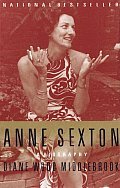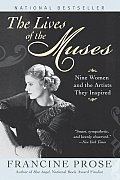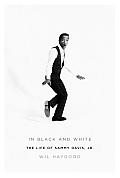 The Long Embrace: Raymond Chandler and the Woman He Loved by Judith Freeman
The Long Embrace: Raymond Chandler and the Woman He Loved by Judith FreemanA few months ago, I went to visit the duplex on Highland Avenue where Raymond and Cissy Chandler lived in 1929 (though I called her Pearl, her given name). After reading Judith Freeman's The Long Embrace, a highly intimate biography of Ray and Cissy, I learned that, of the approximately two dozen homes they shared in Los Angeles and Southern California, this one may have marked the lowest point in their marriage.
During the years this was listed as their address in the Los Angeles city directories, Ray rarely lived there. Instead, he was in the process of drinking himself out of a job, dividing his time between a room at the Mayfair Hotel, and an apartment he'd rented for a secretary at Dabney Oil, with whom he was having an affair.
Finally, the affair and the job came to a nasty end, and Ray returned home. He would spend the next few years learning how to be a writer, and trying to make it all up to Cissy.
Before Freeman's book, little was known about Cissy, other than the fact that she was 18 years older than her third husband. And only a few tangible scraps remain of her -- Chandler insisted that all their letters be destroyed (Ray hinted that a few of them were "rather hot"). However, Freeman embarked on the book hoping to piece together what little remained, and to discover something about what Cissy was like.
The result is as much an account of Freeman's literary sleuthing as it is a biography of the Chandlers. At first, I bristled at Freeman's insertion of herself into the story, her accounts of the places in Los Angeles where she'd lived, the apartment buildings and bungalows she visited while tracking down the elusive Cissy through the homes around the city where the Chandlers lived.
However, it was in a passage about an evening Freeman spends at the HMS Bounty, my favorite bar in Los Angeles, that I realized what she was up to.
Not only was her description of an elderly waitress who worked at the bar when I began going there (and who was rumored to have once roomed with Jane Russell) entirely accurate, it was also reminiscent of Chandler in one of his careful, incisive character studies, given to even incidental characters. And suddenly, I realized that Freeman's trips back and forth across the city, and her descriptions of them, mirrored Philip Marlowe's own.
Of course, this is the only way the book could have been written. And of course, it works beautifully -- it just took me a little time to see it.
And Freeman does find Cissy, in a manner of speaking. She was beautiful, sensual, charming, and gracious. She read Ray's books and stories, and made notes on them, but wasn't really a fan. After a happy and relatively sober decade with her husband in the 30s, her health began to decline; however, shortly before her death in 1954, she mustered the strength for a trip with Ray to England. She may have enabled his drinking to a certain degree, but in this trip, she also enabled him to leave California after she died -- which I suspect is what allowed him to live as long as he did without her (even so, less than five years).
But more than anything, what comes across is that the Chandlers' marriage was a complex one. It was like nothing out of a storybook, the couple had their troubles -- the age difference between them, their reclusive habits, the moves from one furnished apartment to another, Ray's drinking and Cissy's health problems, and Ray's movie work, which probably took a steeper toll on the marriage than even his days with the Dabney Oil Syndicate.
Still, through Freeman's research, we also see a portrait of a couple who loved, understood, and nurtured one another very deeply throughout their 30-year marriage. Their need for one another is both touching and terrifying.
Of Cissy's last year, which he spent mostly caring for her in their La Jolla home, Ray wrote,
I watched my wife die by half-inches and I wrote my best book in the agony of that knowledge, and yet I wrote it... And late at night I would lie on the eight-foot couch reading because I knew that around midnight she would come quietly in and that she would want a cup of tea, but would never ask for it. I always had to talk her into it. But I had to be there, since if I had been asleep, she wouldn't have wakened me, and wouldn't have had her tea.
Do you think I regret any of this? I'm proud of it. It was the supreme time of my life.
Judith Freeman recently spoke with Denise Hamilton as part of the ALOUD series at the Los Angeles Central Library. Although it's not up as a podcast yet, it should be soon, so keep checking.





